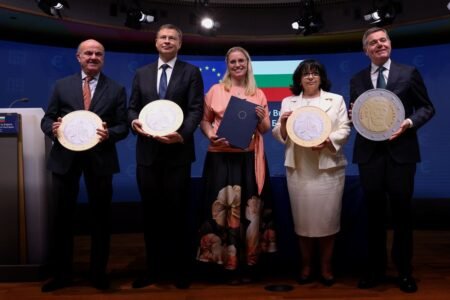(BRUSSELS) – Exports to the EU from developing countries using special tariff preferences under the EU’s Generalised Scheme of Preferences reached a new high of EUR 69 billion in 2018, a report said Monday.
According to a European Commission’s report published every two years on the GSP, released Monday, exports to the EU from the 71 GSP beneficiary countries increased to almost 184 billion. Nearly 69 billion of these used GSP special preferences.
“Through the EU’s Generalised Scheme of Preferences, we support developing countries to grow and advance in a sustainable way, not least when it comes to climate action,” said the EU’s foreign policy chief Josep Borrell: “Our preferential trade tariffs help to take thousands out of poverty, to reduce inequalities, and to bring economic growth.”
While Trade Commissioner Phil Hogan said: “Thanks to our trade preferences, the EU imports twice as much from least developed countries as the rest of the world does. This trademark tool of the EU’s trade policy underpins millions of jobs in the world’s poorest countries and acts as an incentive to countries to implement international conventions on human rights, labour rights, good governance and the environment.”
The Generalised Scheme of Preferences removes import duties on developing countries’ exports to the EU. By creating additional export opportunities, it helps the countries to tackle poverty and create jobs while also respecting sustainable development principles.
For instance, this latest report shows that, thanks to the GSP, countries like Sri Lanka, Mongolia and Bolivia are more effectively tackling child labour.
The EU’s trade agenda contributes to the United Nations Sustainable Development Goals around the world. The preferences provide beneficiary countries with an incentive to take further steps towards effectively implementing international conventions related to human rights, labour rights, environment and good governance.
Challenges remain in many of the 71 GSP beneficiary countries, says the EU executive, including when it comes to restrictions on civil society and freedom of the media, access to justice, minorities’ rights, capital punishment and freedom of association. Insufficient progress, including in some of the largest beneficiaries, has resulted in the EU increasing its monitoring and enhancing its engagement, in particular regarding human rights and labour rights. In the case of Cambodia, this has led to the EU initiating the procedure to temporarily withdraw preferences because of the serious and systematic violation of the principles of core United Nations and International Labour Organization conventions.
The report looks at the extent to which GSP countries make the most of the scheme. It also examines a number of overarching issues such as the freedom of civil society to operate, progress on tackling child labour, and environmental and good governance concerns. The report gives examples of how the EU works with all stakeholders, such as civil society, international organisations – in particular the United Nations and International Labour Organization monitoring bodies – and beneficiary country authorities to make GSP more effective and to make sure that trade and values advance simultaneously.
EU industry is an important partner in making sustainable development a reality by investing and producing in, and sourcing from, GSP countries and by ensuring that international labour and environmental standards are met.
The EU’s GSP has three arrangements:
- A General Arrangement for low and lower-middle income countries, providing the partial or full removal of customs duties on two-thirds of tariff lines (15 beneficiaries);
- GSP+ is a special incentive arrangement for sustainable development and good governance. It slashes these same tariffs to 0% for vulnerable low and lower-middle income countries that implement 27 international conventions related to human rights, labour rights, protection of the environment and good governance (8 beneficiaries);
- EBA (Everything But Arms) is a special arrangement for least developed countries, giving them duty-free, quota-free access for all products except arms and ammunition (48 beneficiaries).
Report on the Generalised Scheme of Preferences
GSP+ assessment for Armenia, Bolivia, Cabo Verde, Kyrgyzstan, Mongolia, Pakistan, Paraguay, Philippines, Sri Lanka and a report on an enhanced engagement with Bangladesh, Cambodia and Myanmar








